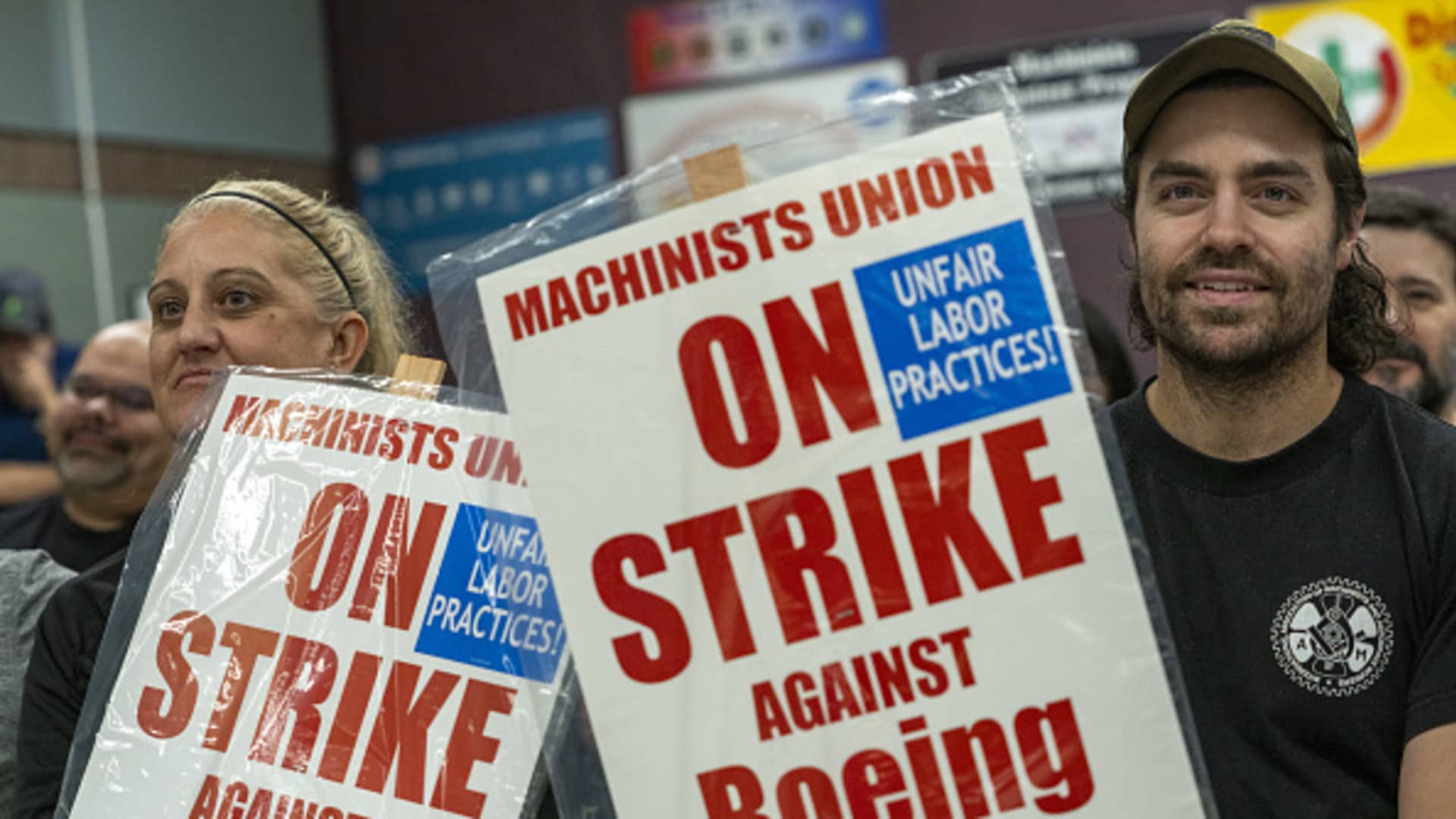Boeing CFO Brian West said a labor strike that began Friday will hurt aircraft deliveries and “jeopardize” the company’s recovery, hours after factory workers walked off the job and overwhelmingly rejected a new labor contract.
West said the financial impact of the strike will depend on how long it lasts, but that it will affect the company’s production of its best-selling planes. Speaking at an industry conference on Friday, West declined to say whether the company could meet a rate of producing 38 737 Max planes per month by the end of the year.
Jefferies aerospace analyst Sheila Kahyaoglu had previously estimated that a 30-day strike could be a $1.5 billion hit for Boeing.
West said Boeing’s immediate focus would be “on actions to conserve cash” and added that new CEO Kelly Ortberg would be working to restore relationships with the union.
Boeing and the International Association of Machinists and Aerospace Workers had unveiled a tentative labor agreement on Sunday that included 25% wage increases over four years and other improvements to health-care and retirement benefits. But workers had been looking for raises of 40% and argued that it didn’t cover the increased cost of living.
Workers in the Seattle area and in Oregon voted 94.6% to reject the proposal, and 96% voted in favor of a strike.
They walked off the job after midnight on Friday.
Boeing machinists last went on strike in 2008, a work stoppage that lasted nearly two months.
The potential production disruption comes as the manufacturer has been facing a slew of issues. It’s struggled to ramp up production and restore its reputation following safety crises.
A door plug blowout on a nearly new Boeing 737 Max 9 in January led Federal Aviation Administration to bar Boeing from increasing output of its Max planes and increasing inspections at production plants, until the regulator is satisfied with its safety and quality procedures there.
An FAA spokeswoman told CNBC on Friday that the agency will keep its inspectors at Boeing facilities during the strike.

